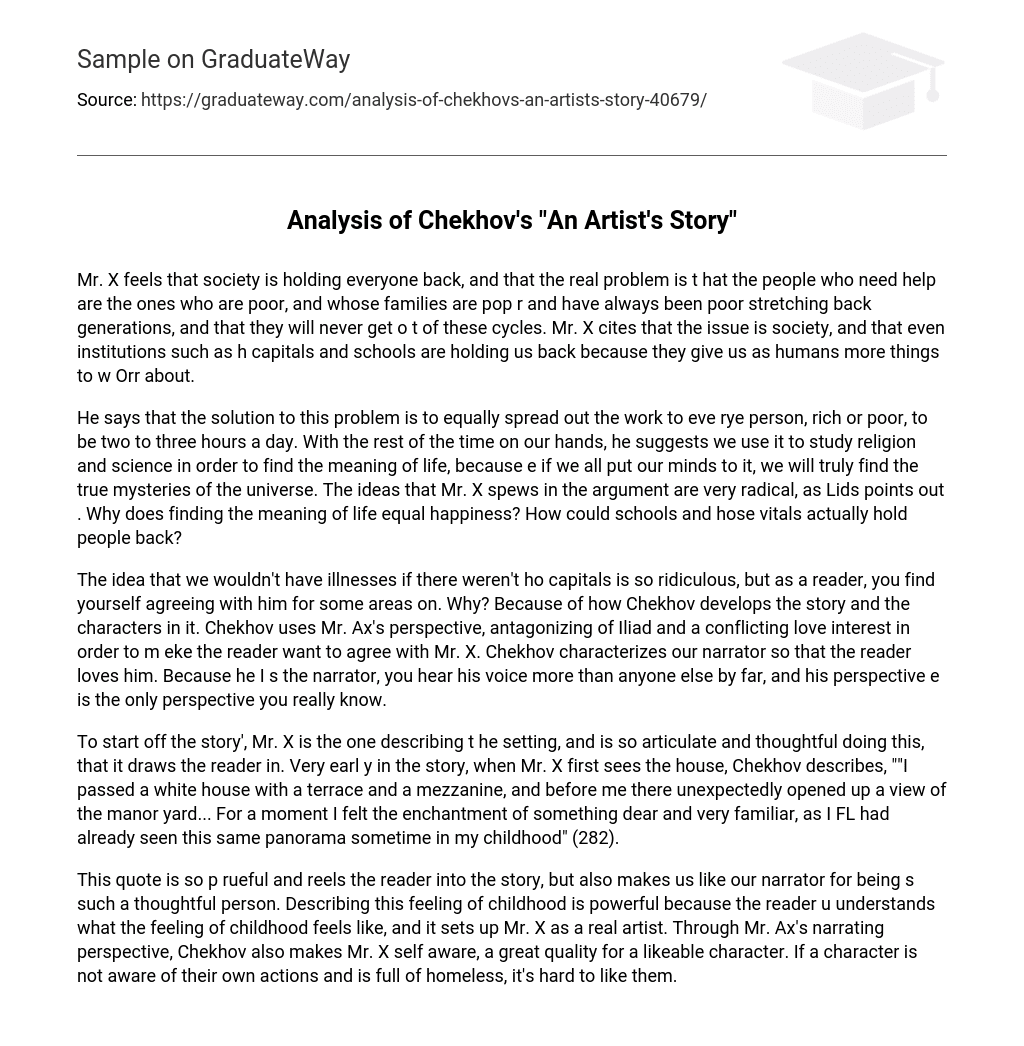Mr. X feels that society is holding everyone back, and that the real problem is t hat the people who need help are the ones who are poor, and whose families are pop r and have always been poor stretching back generations, and that they will never get o t of these cycles. Mr. X cites that the issue is society, and that even institutions such as h capitals and schools are holding us back because they give us as humans more things to w Orr about.
He says that the solution to this problem is to equally spread out the work to eve rye person, rich or poor, to be two to three hours a day. With the rest of the time on our hands, he suggests we use it to study religion and science in order to find the meaning of life, because e if we all put our minds to it, we will truly find the true mysteries of the universe. The ideas that Mr. X spews in the argument are very radical, as Lids points out . Why does finding the meaning of life equal happiness? How could schools and hose vitals actually hold people back?
The idea that we wouldn’t have illnesses if there weren’t ho capitals is so ridiculous, but as a reader, you find yourself agreeing with him for some areas on. Why? Because of how Chekhov develops the story and the characters in it. Chekhov uses Mr. Ax’s perspective, antagonizing of Iliad and a conflicting love interest in order to m eke the reader want to agree with Mr. X. Chekhov characterizes our narrator so that the reader loves him. Because he I s the narrator, you hear his voice more than anyone else by far, and his perspective e is the only perspective you really know.
To start off the story’, Mr. X is the one describing t he setting, and is so articulate and thoughtful doing this, that it draws the reader in. Very earl y in the story, when Mr. X first sees the house, Chekhov describes, “”I passed a white house with a terrace and a mezzanine, and before me there unexpectedly opened up a view of the manor yard… For a moment I felt the enchantment of something dear and very familiar, as I FL had already seen this same panorama sometime in my childhood” (282).
This quote is so p rueful and reels the reader into the story, but also makes us like our narrator for being s such a thoughtful person. Describing this feeling of childhood is powerful because the reader u understands what the feeling of childhood feels like, and it sets up Mr. X as a real artist. Through Mr. Ax’s narrating perspective, Chekhov also makes Mr. X self aware, a great quality for a likeable character. If a character is not aware of their own actions and is full of homeless, it’s hard to like them.





